In the realm of healthcare, two demographic groups often command special attention due to their unique physiological and care requirements: pediatric and geriatric patients. The incorporation of medical cannabis into the treatment regimes for these sensitive age groups marks a groundbreaking shift in therapeutic approaches, transcending conventional boundaries and unveiling new horizons of hope and healing. This exploration into the use of medical cannabis in pediatric and geriatric care is not just about a plant; it’s about reimagining healthcare in a way that’s both profoundly compassionate and scientifically forward-thinking.
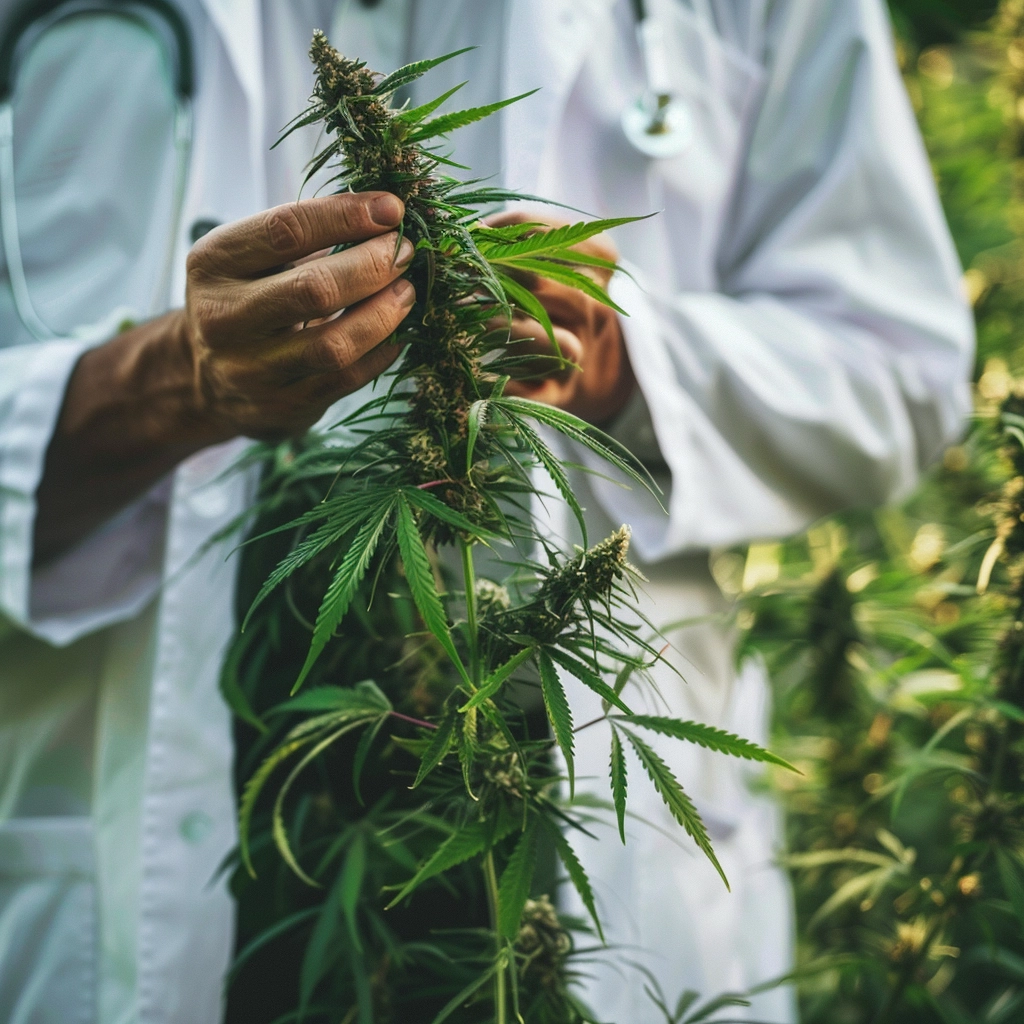
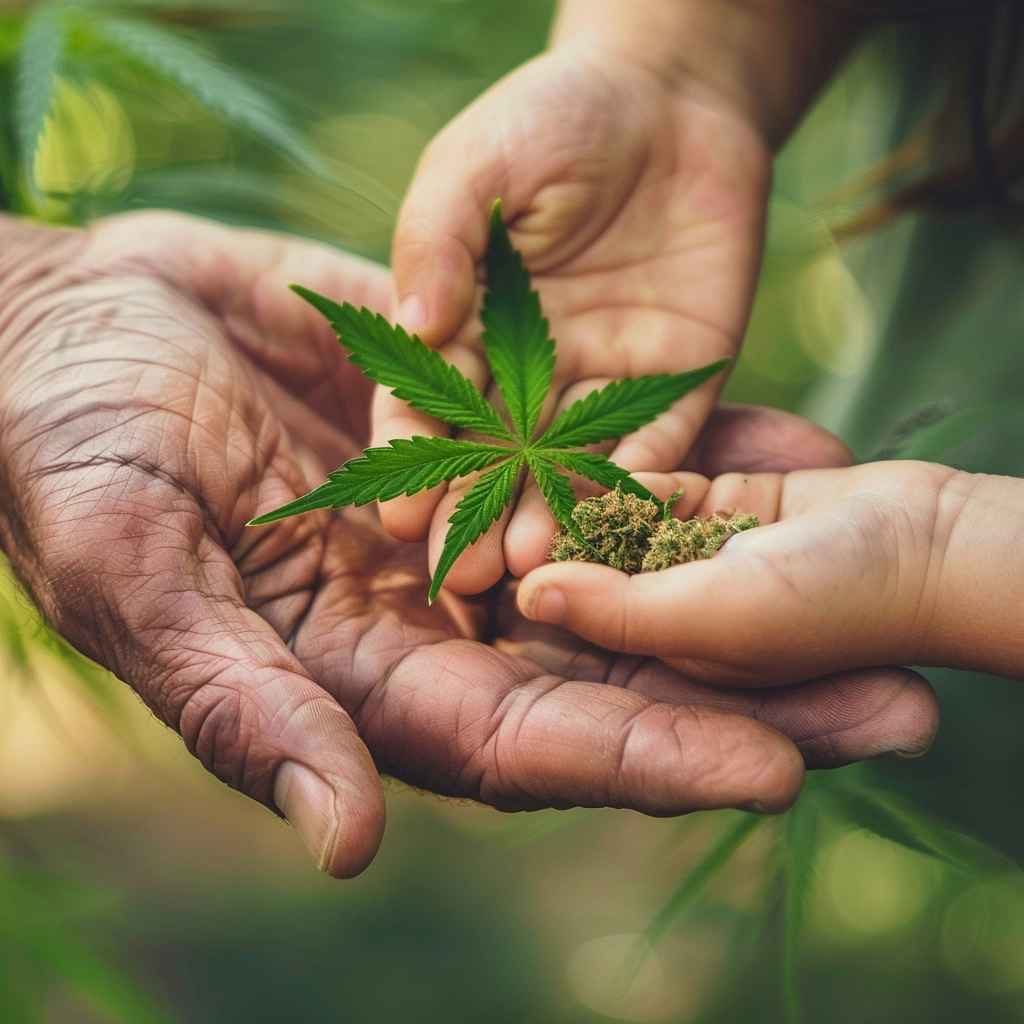
Table of Contents
ToggleA Gentle Touch: Medical Cannabis in Pediatric Care
The use of medical cannabis in pediatric care is a testament to the medical community’s commitment to exploring all avenues of relief for young patients facing debilitating conditions. The journey of medical cannabis from taboo to treatment in pediatric medicine underscores a narrative of breakthroughs, challenges, and the relentless pursuit of compassionate care.
Transforming Lives: Cannabis and Childhood Epilepsy
One of the most compelling stories of medical cannabis in pediatric care revolves around its use in treating severe forms of childhood epilepsy, such as Dravet syndrome and Lennox-Gastaut syndrome. CBD, a non-psychoactive component of cannabis, has emerged as a beacon of hope for families grappling with these devastating conditions. The FDA’s approval of Epidiolex, a CBD-based medication, marks a significant milestone in this journey, offering tangible evidence of cannabis’s therapeutic potential in pediatric neurology.
Beyond Epilepsy: Broadening the Horizon
The potential of medical cannabis extends beyond epilepsy, touching on conditions like autism spectrum disorder (ASD), attention deficit hyperactivity disorder (ADHD), and severe cases of anxiety and depression. While research is in its nascent stages, anecdotal evidence and preliminary studies suggest that cannabinoids can play a role in managing symptoms and improving quality of life for children with these conditions.
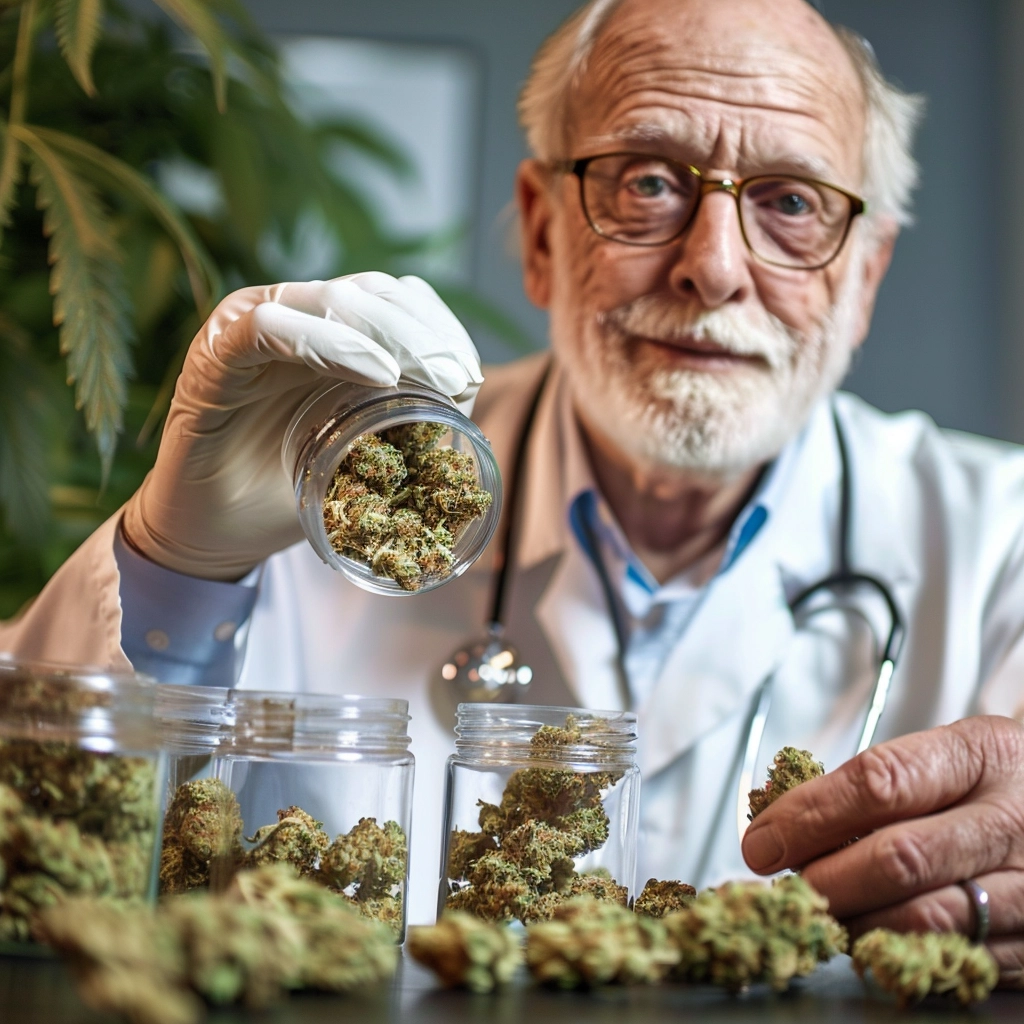

Embracing Wisdom: Medical Cannabis in Geriatric Care
In the golden years of life, the goal of care shifts towards maintaining quality of life, managing chronic conditions, and alleviating pain. Medical cannabis offers a holistic approach to geriatric care, addressing a spectrum of age-related concerns with a gentleness and efficacy that’s often hard to find in traditional pharmacology.
A New Ally Against Chronic Pain and Alzheimer's
Chronic pain and neurodegenerative diseases like Alzheimer’s pose significant challenges in geriatric care. Cannabis, with its analgesic and neuroprotective properties, offers a ray of hope. THC and CBD can help manage chronic pain with fewer side effects than opioids, and the anti-inflammatory and antioxidant properties of cannabinoids are being explored for their potential in slowing neurodegenerative processes.
Enhancing Quality of Life: Cannabis's Role in Palliative Care
In palliative care, the focus is on comfort and quality of life. Medical cannabis has shown promise in alleviating symptoms associated with terminal illnesses and the side effects of treatments like chemotherapy, including nausea, loss of appetite, and pain. For many elderly patients, cannabis offers not just symptom relief but a chance to enjoy their remaining time with dignity and less discomfort.
Navigating Challenges and Charting the Future
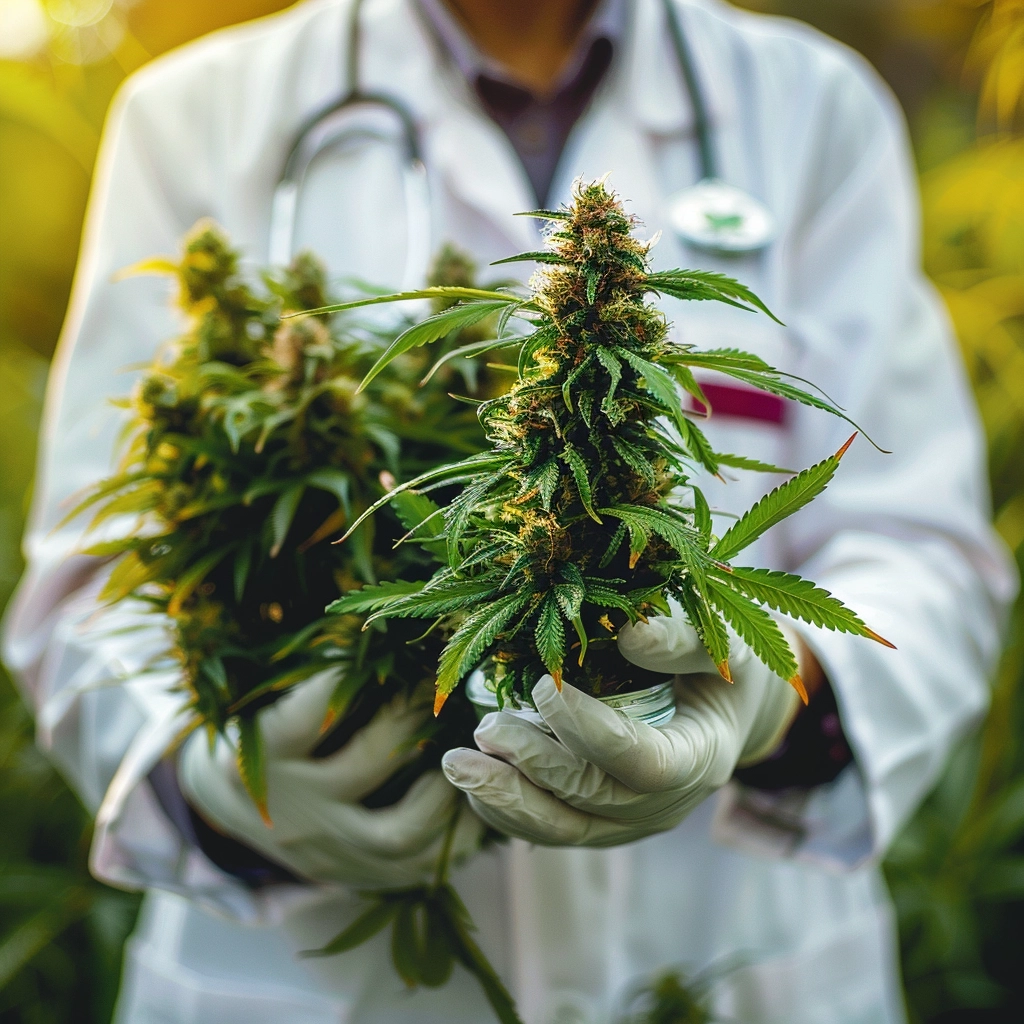
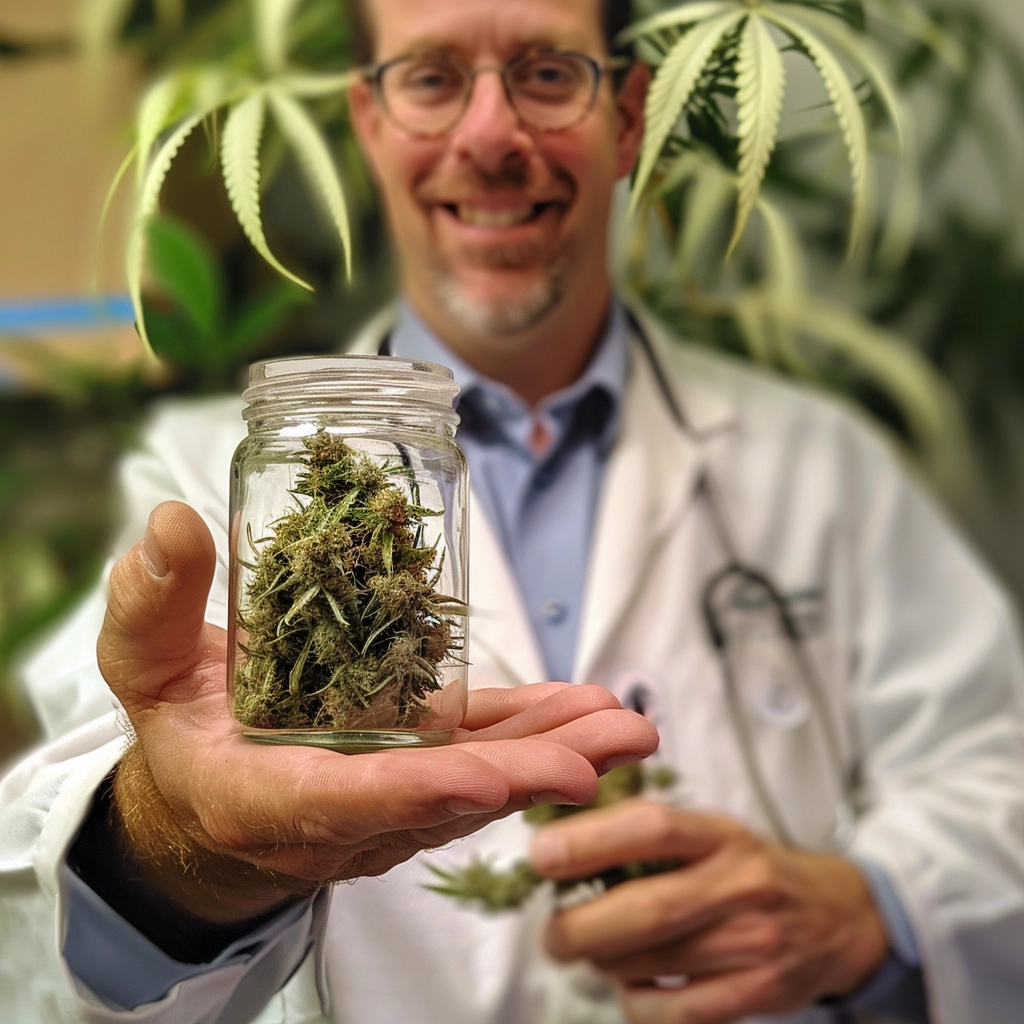
The integration of medical cannabis into pediatric and geriatric care is not without its challenges. Ethical considerations, dosing complexities, and a lack of comprehensive clinical trials specific to these age groups pose significant hurdles. Moreover, societal stigma and legal constraints continue to restrict access and research.
A Call for Compassionate Research and Policy Reform
The future of medical cannabis in pediatric and geriatric care hinges on robust clinical research and enlightened policy reform. As societal attitudes evolve and scientific understanding deepens, there is hope for a healthcare landscape where medical cannabis is not a last resort but a valued component of patient-centered care.
A Vision of Integrated Care
Envisioning a future where medical cannabis seamlessly integrates into pediatric and geriatric care requires not just scientific breakthroughs but a cultural shift towards more empathetic, holistic healthcare. It’s about creating a space where the wisdom of nature and the precision of science converge to offer relief and hope to the most vulnerable among us.
In the narrative of medical cannabis, pediatric and geriatric care represent chapters filled with both challenges and immense promise. As we continue to explore and understand the therapeutic potential of cannabis, we step closer to a world where every individual, regardless of age, has access to compassionate, effective care options. In this journey, the goal is clear: to ensure that the gentle touch of medical cannabis reaches those who stand to benefit most, transforming lives one gentle, hopeful step at a time.
FAQ: Medical Cannabis in Pediatric and Geriatric Care
What conditions in pediatric care can medical cannabis help treat?
Medical cannabis has shown promise in treating several pediatric conditions, including severe forms of epilepsy like Dravet syndrome and Lennox-Gastaut syndrome, autism spectrum disorder (ASD), attention deficit hyperactivity disorder (ADHD), and certain cases of anxiety and depression. Its use is based on its ability to manage symptoms and improve quality of life.
Is medical cannabis safe for children?
The safety of medical cannabis for children, especially CBD-based treatments, has been supported by clinical trials for specific conditions, such as certain types of epilepsy. However, like any medication, it must be prescribed by a healthcare professional who will consider the child’s medical history, condition, and potential side effects. THC-containing products are generally used with more caution due to psychoactive effects.
How can geriatric patients benefit from medical cannabis?
Geriatric patients may find relief from chronic pain, improvement in sleep quality, appetite stimulation, and a reduction in the symptoms of neurodegenerative diseases like Alzheimer’s with medical cannabis. It can also alleviate symptoms associated with cancer treatments, such as nausea and general discomfort, enhancing overall quality of life.
Are there particular risks of using medical cannabis in elderly patients?
Elderly patients might be more sensitive to the effects of cannabis, including potential interactions with other medications. Concerns such as balance and cognitive effects, particularly with THC-dominant strains, necessitate careful dosing and monitoring by healthcare professionals.
How is medical cannabis administered to pediatric and geriatric patients?
The administration method is chosen based on the patient’s needs, condition, and ease of use. Options include oils, tinctures, capsules, and topical applications. Inhalation is less commonly recommended for pediatric and geriatric patients due to the risks associated with smoking and the difficulty in dose management.
What legal considerations should be taken into account?
Legal access to medical cannabis varies by location, and it’s essential to understand local laws and regulations. In areas where it’s permitted, a prescription or recommendation from a qualified healthcare provider is typically required.
How can caregivers or family members support pediatric or geriatric patients using medical cannabis?
Caregivers can play a crucial role by educating themselves about medical cannabis, maintaining open communication with healthcare providers, monitoring the patient’s response to treatment, and ensuring that the use of cannabis is part of a comprehensive care plan.
Can medical cannabis be used alongside traditional medications?
In many cases, yes, but it’s essential to consult healthcare professionals to avoid potential drug interactions. A tailored approach considering all medications and supplements the patient is taking is necessary to ensure safety and efficacy.
What should I do if I'm considering medical cannabis for a pediatric or geriatric patient?
The first step is to consult with a healthcare professional experienced in medical cannabis who can provide guidance based on the patient’s specific health condition, needs, and legal considerations. They can help determine if cannabis is an appropriate treatment option and develop a personalized treatment plan.
These FAQs offer a starting point for understanding the complex landscape of medical cannabis in pediatric and geriatric care, highlighting the importance of informed, compassionate approaches to its use in these sensitive patient populations.
Kannabu's Online Cannabis Educational Resources
Read Educational Online Guides and Articles to Learn About Cannabis
- Navigating the Green Path: CBD vs. THC in Medical Treatment
- The Aromatic Architects of Healing: The Role of Terpenes in Medical Cannabis
- Navigating the Green Frontier: Clinical Trials on Cannabis and Its Effects
- Charting the Green Path: Cannabis Dosing Guidelines for Medical Use
- The Endocannabinoid System: Nature’s Balancing Act in Human Health
- A Green Horizon: Cannabis as an Alternative to Opioids
- Navigating the Mind’s Garden: Cannabis and Mental Health Treatment
- Unlocking the Green Code: Exploring the Genetic Diversity and Pharmacological Promise of Cannabis
- Weaving Green into Gold: The Integration of Medical Cannabis into Traditional Medicine
- The Therapeutic Promise of Medical Cannabis: Exploring the Spectrum of Cannabinoids
- From Young to Old: The Compassionate Embrace of Medical Cannabis in Pediatric and Geriatric Care
- Green vs. Traditional: Navigating the Crossroads of Medical Cannabis and Conventional Therapies
- Beyond the Pain: The Comparative Effectiveness of Cannabis in Chronic Pain Management
- Unlocking Cannabis’s Secrets: The Journey Through Cannabinoid Pharmacokinetics and Pharmacodynamics
- Green Paws: Navigating the Frontier of Medical Cannabis in Veterinary Care
- Unlocking Relief: The Transformative Role of Medical Cannabis in Pain Management
- Harnessing Harmony: Medical Cannabis and the Battle Against Autoimmune Disorders
- Embracing the Night: How Medical Cannabis Transforms Sleep Management
- Turning the Tide: Cannabis as a Catalyst for Relief and Recovery in Nausea and Appetite Stimulation
- Illuminating the Neural Pathways: The Transformative Role of Medical Cannabis in Neurological Conditions
- Harnessing Harmony: Medical Cannabis and the Battle Against Autoimmune Disorders
- A Clearer View: Medical Cannabis in the Treatment of Glaucoma
- Breaking Boundaries: Cannabis and the New Frontier in Epilepsy and Seizure Control
- Revolutionizing Relief: Medical Cannabis in Cancer Symptom Management
- Navigating the Storm: Cannabis as a Beacon of Hope in Multiple Sclerosis Treatment
- Cannabis: A Natural Respite for Arthritis and Joint Pain
- Healing from Within: The Role of Medical Cannabis in Treating Gastrointestinal Disorders
- Healing Invisible Wounds: Cannabis in PTSD and Trauma Treatment
- Balancing the Mind: The Potential of Medical Cannabis in Bipolar Disorder and Mood Stabilization
- Illuminating the Mind: Cannabis in the Treatment of Alzheimer’s and Neurodegenerative Diseases

